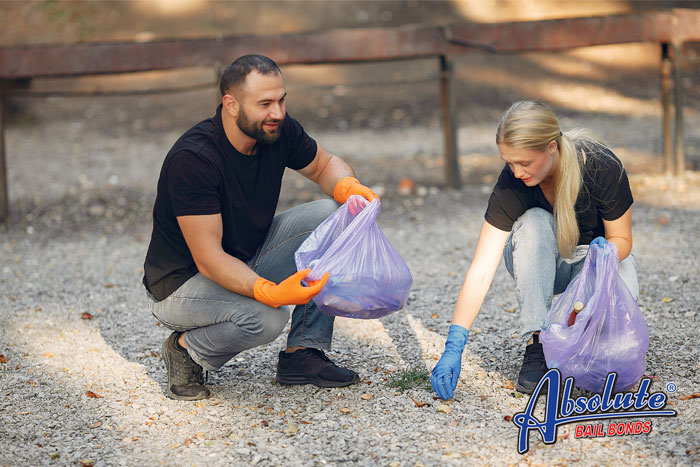Community Service in Criminal Cases
Many people find that they have to complete a specific number of hours of community service as a part of their sentence. Some people love this because the community service can reduce fines and jail time. Others hate having to do so much work without getting paid.
Judges have the right to make community service a part of a sentence. Sometimes the community service replaces fines, jail time, and probation. In other cases, it’s used in tandem with the other consequences.
Community service has become so popular amongst judges that some large communities discovered that they had to hire another person and even create whole new county offices just to help with the community service portion of sentencing. These separate offices help people find promising community service opportunities, track hours, and make sure everything is properly reported to the sentencing judge.
The great thing about community service is that there are lots of different options. The only stipulation is that the work has to be done in connection with a non-profit organization and that you don’t get paid for it. You can choose to complete all of the hours by working with a single non-profit or you can divide your time up with multiple organizations.
Some communities also have government programs that qualify as community service.
When you find out that you need to complete X amount of hours of community service, the first thing you need to do is sit down and think about what you like. The entire process will be more enjoyable if you’re doing work you like or at least working for a cause you’re passionate about.
Popular community service choices include:
- Helping out at animal rescues
- Assisting at homeless shelters
- Helping organize non-profit events, such as awareness runs and festivals
- Community improvement/beautification projects
- Speaking to school groups
Once you’ve identified the type of work you’d like to do, it’s time to contact the non-profits and find out their requirements. Make it clear that the volunteering work you’re doing is for the courts. Some non-profits choose not to track hours for the courts. Others require a background check that you won’t pass because you have a criminal record.
If the first non-profit you contact doesn’t work out, contact another one until you find one that’s happy to accept you.
Create a schedule and stick to it. You want to complete your community service hours as quickly as possible so that the judge doesn’t revisit your sentencing and decide you’re shirking your responsibilities. If for some reason, you do run into a problem and won’t be able to complete the required number of hours by the court-appointed deadline, you need to contact the court and let them know. It’s likely that as long as you can prove that you’re making a genuine effort they’ll choose to extend your deadline.
Be diligent about recording the number of hours you’ve worked at your community service project. Get the person who is supervising you to sign off on your time after each session. Turn the information to the court.
The great thing about community service is that you can sometimes use it to make important new connections, develop skills, and possibly even find a program you want to continue helping even after you’ve fulfilled your community service requirements.


